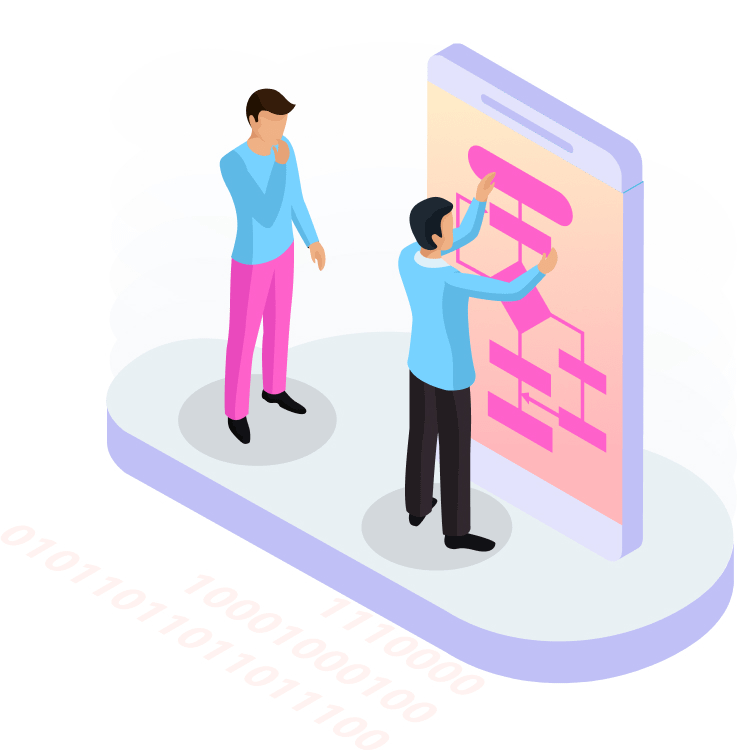Investor behavior is changing as a result of the use of AI in stock trading. Complex algorithms are employed to evaluate enormous volumes of data, forecast market movements, and execute deals at the optimal times. Due to its unmatched speed and efficiency over human traders, this technology has emerged as a key component of contemporary trading techniques. Explore how AI, along with other FinTech trends in 2024, is revolutionizing investment strategies.
Key AI technologies empowering stock traders
Artificial intelligence (AI) tools for stock trading are diverse, playing a pivotal role in the ongoing innovations in FinTech. Machine learning is used by AI stock trading software to adjust and enhance its analysis over time. AI stock trading bots are always looking for chances in the market, executing trades based on predetermined criteria. Furthermore, investors may now access this technology through AI stock trading applications, which provide real-time information and trading capabilities on mobile devices.
Benefits and use cases of AI in Stock Trading
1. Enhanced market analysis
Compared to conventional approaches, artificial intelligence (AI) algorithms can process enormous volumes of data, including historical pricing patterns, global economic indicators, and social media trends, to produce a more thorough market analysis.
2. Real-time decision making
Artificial intelligence (AI) systems are able to make trades and assess market circumstances considerably faster than human beings can, allowing them to take advantage of opportunities that could last for just a few microseconds.

3. Predictive analytics
AI systems employ sophisticated predictive models to anticipate stock movements and market trends, assisting traders in making well-informed decisions on the purchase, sale, or retention of assets.
4. Backtesting efficiency
AI’s ability to quickly backtest trading techniques against historical data makes it possible for traders to improve their tactics using factual information rather than conjecture. This is known as backtesting efficiency.

5. Personalized trading strategies
AI systems are able to create customized trading strategies that correspond with certain risk tolerances and investment objectives by learning from individual trading habits and preferences.
6. Cost reduction & risk management
By eliminating the need for huge teams of analysts and traders, automated AI trading systems may save investment companies a considerable amount of money. AI can help traders reduce losses by modifying their strategy in real-time by identifying possible hazards by studying past data and market movements.

7. Enhanced regulatory compliance
By rapidly examining transactions for any violations, artificial intelligence (AI) may assist in monitoring and guaranteeing compliance with a variety of trade rules.
8. Diverse data integration
AI is able to combine and evaluate information from a variety of sources, including unstructured data from social media postings and news articles, to provide a more comprehensive picture of the market.

9. Improvements to algorithmic trading
Artificial intelligence (AI) makes algorithmic trading techniques more successful and lucrative by continually learning and adjusting to changing market circumstances.
10. Market sentiment analysis
AI is capable of analyzing social media, news, and other data to determine the general mood of the market, which may be a useful predictor of future movements.

11. Fraud detection and security
AI systems are good at spotting odd trading patterns that might point to fraud, which makes trading platforms more secure.
12. Accessibility for individual investors
AI in investing and AI-powered platforms & tools are democratizing the trading environment by increasing the accessibility of advanced trading tactics for individual investors.

Prospects for AI investment in future
Artificial intelligence (AI)-powered investments seem to have a bright and revolutionary future. The potential for completely changing the investing environment is enormous when AI is incorporated into stock trading at an increasingly sophisticated level. More sophisticated and precise prediction models are coming thanks to the quick development of AI technology, which might greatly improve financial market decision-making.
Final thought
In summary, a new era in investing methods has been brought about by the incorporation of artificial intelligence (AI) into stock trading. The use and use of AI in stock trading has been greatly influenced by a number of important technologies and advantages, including AI chatbots in the banking industry.
Stock traders can now swiftly and effectively handle enormous volumes of data thanks to AI technology like trading bots and machine learning algorithms. Better market research, real-time decision-making, predictive analytics, effective backtesting, and customized trading strategies based on individual risk tolerances and goals are the results of this. AI in banking has played a pivotal role in making these advancements possible.
Additionally, the use of AI has reduced costs and improved risk management, eliminating the need for big teams of analysts and traders and assisting in the identification of possible risks and regulatory compliance. AI’s transformative impact on stock trading is undeniable, making it a cornerstone of modern investment strategies.